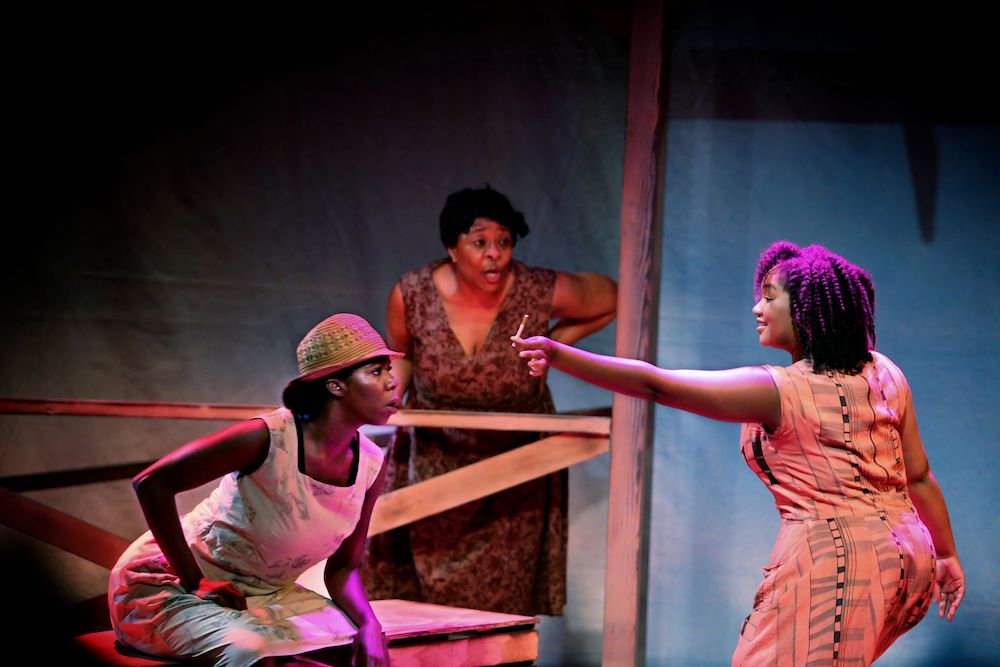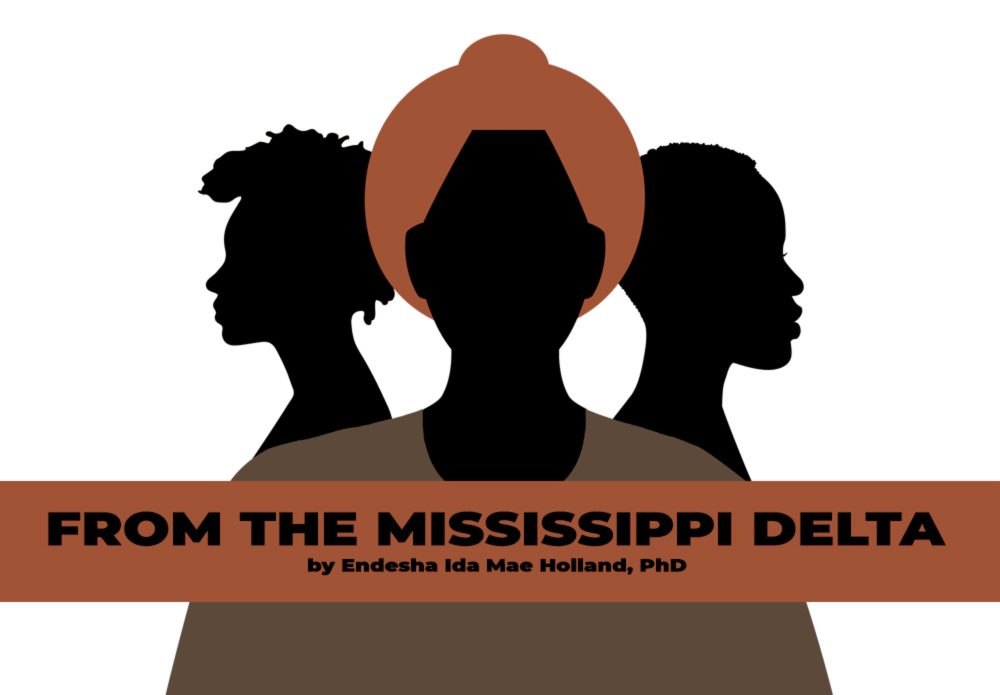The magic of live theater is that it is a singular event. It is inherent in seeing a play only once, or in the knowledge that a performance will never be the same twice. That’s why it’s particularly special when a show leaves you feeling bittersweet about this fact, and the Essential Theatre’s production of From the Mississippi Delta does exactly that. With captivating source material about the life of playwright Endesha Ida Mae Holland, the show faithfully portrays her story and captures the difficulty of encompassing someone’s history on stage, doing both so well that it is impossible to be satisfied seeing it just once.

From the Mississippi Delta tells this story through Phelia, our narrator, who serves as an alias for Holland. The show consists of about ten vignettes that recount significant events in Phelia’s life, like her work with the Student Nonviolent Coordinating Committee (SNCC), her brief time as a burlesque performer, and the role of her mother, Ain’t Baby, as a doctor-midwife serving fellow Black women in their community. These vignettes depict various parts of Phelia’s story as a Black woman growing up in Mississippi and, in doing so, show us that as essential as these stories are to the whole, equally important are the depths that the stories contain on their own. This structure alone is stunning, but it is enhanced by Holland’s literary hand, as each snippet, whether joyous or harrowing, is steeped in gorgeous prose, Delta dialect, and a very genuine mix of melancholy and humor, all of which makes it extremely compelling to watch.

The slices of Phelia’s life that we see are performed by a phenomenal cast, one that does particularly incredible work being faithful to the source material. Cynthia Davis (as Woman 1), Pauline Lamb (Woman 2), and Crystal Henry Arful-Addoh (Woman 3) excel at the difficult task that is evident even in their character names: donning multiple characters, and making them each distinct and interesting. But what’s all the more impressive is how they handle another difficult task alongside these character shifts, as they all work to interpret and give voice to the main character, Phelia, together. There are times when each actor must slip out of one character and immediately back into some facet of Phelia, whether that is her narrative voice, her young self, or even her emotional expression through song. Davis, Lamb, and Arful-Addoh bring vital clarity to these moments, while somehow never sacrificing either cohesion or differentiation in their portrayal of Phelia. Their command of this character setup, a cross between a Greek chorus and a rotating carousel of people, creates a fantastic dynamic wherein they imbue the text with spontaneity and authenticity. It also spotlights a beautiful quality at the heart of From the Mississippi Delta: a generous, omnipresent flow between an individual and the community around them.
The lighting (Hailey LaRoe) and other technical elements then throw an element of wonder into the vignettes, both framing them, making them clear and distinct, and also suffusing the play with extraordinary moments in everyday life. Not to mention that the lighting is gorgeous — that much is evident from the first ten minutes alone, which already saturates the play with different colors, and in doing so, with different moods as well. It makes the space all the more intimate and specific. Otherwise, the skillful set design (April Joy “AJ” Bastian), sound design (Jairous L. Parker, Sr.), and costumes (Luqman Salim) are all evocative of the rural South of the past but seem to be intentionally vague and simple, which means that pieces can be cleverly used again and again, as stage boxes becoming beds, theater seating, and car interiors. Instead of relying on hefty props, nostalgia, or spectacle, this production relies on the ingenuity of its cast and director (Luther D. Wells) making the absolute most of what is there, and engaging the audience’s imagination by way of that creativity.
This use of space tracks precisely with the text and the characterization, always seeming to come back to the interconnectedness of things. Vignettes and slices of life are vital to a whole story, and vice versa. Individuals are always influencing their communities and vice versa. What exists on the stage is inextricably linked to our imaginations, our lives, and vice versa. Because it illuminates the codependence between parts and wholes, From the Mississippi Delta feels deeply honest in its endeavor to tell the stories of Phelia and Ain’t Baby. It embraces the fact that it is impossible to capture everything, showing us so much, but not everything, so that you leave feeling desperate to see it again, and also sure that you witnessed exactly what you were meant to.
Running Time: One hour 40 minutes with no intermission
From the Mississippi Delta plays to July 10, 2022, presented by The Essential Theatre performing at Anacostia Playhouse, 2020 Shannon Place SE, Washington, DC. Tickets for regular performances (Thursday and Sunday at 7:00 pm, Friday and Saturday at 7:30 pm, and Saturday and Sunday at 3:00 pm) are $39 and can be purchased online.
Recommended for ages 16 and up.
The program for From the Mississippi Delta is online here.
COVID Safety: Masks are required.
SEE ALSO:
Tribute to Black ‘sheroes’ in Essential Theatre’s ‘From the Mississippi Delta’ (news story)





